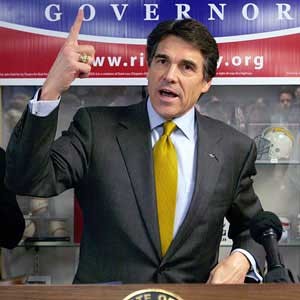Good Work: Sentiments of Consideration
“When I think of all those wave functions filling space, rich in potentials, accumulating more and more possibilities as they fan out, I wonder why we limit ourselves so quickly to one idea or one structure or one perception, or to the idea that “truth” exists in objective form.” -Margaret Wheatley

Reactions to Gov. Rick Perry’s appearance at a prayer rally took me back 15 years. In an effort to build community support for public education, I helped organize a gathering of faith confrontations in support of youth. Sitting together on the stage, a pastor and I experienced something completely different. Lifted by the unlikely crowd in support of children in a public school football stadium, I was swimming in the glow of the collaboration and celebration. The big rally was a personal highlight, a sign of hope and community support. The pastor next to me was uncomfortable, excluded, and insulted. I had brought my eager anticipation, he brought a different vision based on years of pain: two different backgrounds, two filters, two realities that collided one week later in angry messages.
Empathy does not come as easily or naturally to me as it does to many other people. It often takes a jolt, like the one I received after the community rally, to see a different point of view. We each experience our own reality, viewing decisions and events in our own unique way. After the pastor told me how much he hated the event it made me wish for a wider view with a bit more insight into other perspectives.
While walking into a school board meeting I stopped to talk with a mother that was obviously distraught. She said that her son was facing assault charges for hitting another student that had apparently provoked him with a racial epithet. She complained that the special education teacher had not fulfilled her duties, that the psychologist had misdiagnosed him, that the counselor had inappropriately expelled him, and that the principal was just plain rude. She began to tremble as she cried, “He’s 16 years old and he can’t read and he’s going to jail and I’m holding you personally responsible.” I asked my Assistant Superintendent to discuss the case with her and headed for the board table still shaken by the incident. Another mother grabbed my arm and said, “I just want to thank you! Your schools are wonderful. My 16 year old daughter is doing so well that she is taking college level courses and will graduate from college in three years.” The tale of two mothers illustrates that the system of public education is still a sorting machine that works well for some students and poorly for others. These two women, whose children were accessing the same system, had opposing views as a result of radically different experiences – a continuing reminder that parents have a variety of perspectives about their schools.
The leadership challenge is to bring perspective to every decision, to gather diverse points of view together in a learning experience. On my first day on the job the teachers went out on strike. I called three town meetings and found packed gymnasiums three nights in a row. During two hours of open microphone each night I heard stories that described a wide variety of views on the situation and the history behind it. Painful as it was, the listening and learning helped us find a relatively quick solution (and turned out to be a great way to meet thousands of people quickly). Building perspective can be a frustrating task because it takes patience and dialog.
I’m worried that our current political climate is more about simple minded pledges than perspective-seeking dialog. One thing I appreciate about President Obama is his apparent interest in building an understanding of multiple perspectives around every major decision. He’s been criticized for this since the debt ceiling deal because he appears weak when dealing with folks that bring certainty of conviction. Certainty is great for execution but the politics of public education are personal and that requires perspective-building dialog
About his visit to our schools, a Japanese principal wrote, “We have tried to refine our intelligence in order to understand a different culture, and tune our senses to new discoveries and impressions, and to cultivate the sentiments of consideration and gratitude.” That is a great perspective.
Good Work is a Sunday series based on journal entries while serving as a public school superintendent in the 1990s.







0 Comments
Leave a Comment
Your email address will not be published. All fields are required.